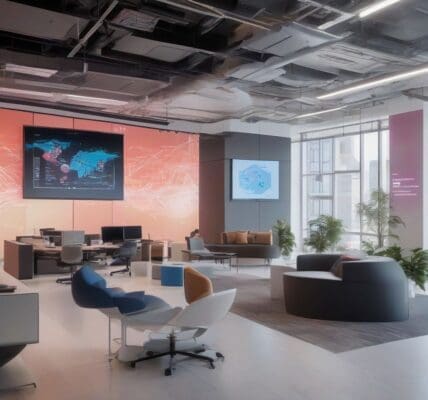Germany is synonymous with excellence, particularly in the realm of automotive manufacturing, with iconic brands like Volkswagen and BMW symbolizing quality and reliability. However, the landscape extends far beyond automobiles. This article examines 100 companies in Germany that are redefining the business environment, alongside essential insights into the current economic climate and actionable strategies for companies eager to make their mark.
The KPMG Financial Performance Index (FPI) for Germany offers a glimpse into the economy’s resilience. The first quarter of 2024 shows a slight improvement over the last quarter of 2023, signaling recovery in various sectors. Notably, technology and IT sectors remain robust, with industry leaders such as SAP and Siemens continuing to thrive. Meanwhile, growth has also been seen in the food and beverage, utilities, and business services sectors.
Despite this gradual recovery, challenges persist. The pharmaceuticals and raw materials sectors experienced declines as global demand waned and costs escalated. Revenue growth has slowed in energy and construction, influenced by elevated energy prices and supply chain disruptions. However, optimism prevails as projections suggest a more stable financial outlook throughout 2024, primarily as inflation eases and demand stabilizes.
In evaluating company performance, market capitalization has emerged as a critical metric, reflecting a company’s total market value and serving as a benchmark for investors. Companies in enterprise software and industrial technology have retained the highest market capitalization within the German market. This year, tech firms like AUTO1 and Bechtle surged forward, bolstered by their expansion into digital platforms and IT services.
The global dynamics of 2024 have undeniably affected German companies. Issues such as inflation, supply chain interruptions, sustainability concerns, and geopolitical tensions have compelled many firms to reevaluate their sourcing strategies and diversify their operations. Particularly, the automotive and manufacturing sectors have faced significant challenges, necessitating a shift toward local and sustainable alternatives for raw material sourcing.
One of the most significant trends is the growing emphasis on sustainability and renewable energy. Companies such as Nordex, which concentrates on renewable energy production, have gained traction. This focus aligns closely with Germany’s national sustainability goals and signifies a broader shift toward eco-friendly corporate practices.
Innovation stands as a key differentiator among Germany’s leading enterprises. Companies investing in automation, digitization, and sustainable practices are increasingly exhibiting resilience and growth, especially in IT and medical services. For instance, enterprises that have integrated innovative solutions into their business models are not merely adapting to market demands but are actively influencing them.
Moreover, many of Germany’s top 100 companies are pursuing global expansion strategies, diversifying their market presence into emerging markets across Asia and Africa. This approach enhances revenue prospects while mitigating risks affiliated with economic downturns in specific regions, a strategy that has proven beneficial amid recent global challenges.
In addition to corporate strategies and market dynamics, employee well-being and corporate culture have increasingly become focal points in driving company success. Prioritizing the well-being of employees leads to heightened morale, which directly impacts productivity, retention, and innovation levels. A staggering 81% of employees consider corporate culture when choosing their workplace, indicating the necessity for companies to foster environments that support mental and physical health. Research shows companies with high employee engagement report 21% greater profitability than those that do not prioritize these initiatives.
As we inch closer to our ranking of the top 100 companies in Germany for 2024, information sourced from CompaniesMarketcap.com reveals significant shifts in industry dynamics. Traditional sectors like automotive and chemical manufacturing maintain robust positions; however, the digital and tech sectors are climbing the ranks. Noteworthy entries such as Atoss and AUTO1, specializing in software and e-commerce, showcase the rising importance of digital transformation and technological innovation.
Germany’s economy, ranked as one of the largest in Europe, comprises a multitude of thriving industries. The top five sectors represented within the top 100 list are:
1. Automotive
2. Chemicals
3. Telecommunications
4. Real Estate
5. Insurance
Other relevant industries include pharmaceuticals, healthcare, energy, retail, machinery, financial services, technology, construction, and shipping. This diverse array reflects a blend of traditional manufacturing prowess and burgeoning digital innovations.
For those interested in further exploring the German market, the full ranking of the top 100 companies in Germany is available through CompaniesMarketcap.com.
In conclusion, Germany’s resilience in navigating global challenges, coupled with firm commitments to innovation, e-commerce potential, and sustainability practices, positions its companies favorably for future growth. As new players emerge and established firms evolve, the prospects for success within the German market remain promising.












